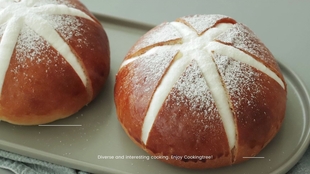First Time Bread Recipe: A Beginner's Guide to Baking Perfect Homemade Bread
Guide or Summary:Why Choose a First Time Bread Recipe?Ingredients You Will NeedStep-by-Step InstructionsTips for SuccessEnjoying Your Homemade BreadIf you'v……
Guide or Summary:
- Why Choose a First Time Bread Recipe?
- Ingredients You Will Need
- Step-by-Step Instructions
- Tips for Success
- Enjoying Your Homemade Bread
If you've ever wanted to try your hand at baking bread but felt intimidated by the process, this first time bread recipe is perfect for you. Bread baking can seem like a complex and daunting task, but with this step-by-step guide, even complete novices can produce a delicious, homemade loaf of bread.
Why Choose a First Time Bread Recipe?
Choosing a first time bread recipe is crucial for beginners because it simplifies the process and removes much of the guesswork. These recipes are designed with simplicity in mind, using basic ingredients and clear instructions to ensure your first foray into bread baking is a success.
Ingredients You Will Need
For this first time bread recipe, you will need the following ingredients:
- 500g of bread flour
- 7g of instant yeast
- 10g of salt

- 300ml of warm water
- 30ml of olive oil
These ingredients are common and can be found in most kitchens or local grocery stores.
Step-by-Step Instructions
1. **Mixing the Dough**: In a large mixing bowl, combine the flour, yeast, and salt. Make sure to keep the yeast and salt separate initially, as direct contact can inhibit the yeast's activity. Gradually add the warm water and olive oil to the dry ingredients, mixing with a wooden spoon or your hands until a rough dough forms.
2. **Kneading**: Transfer the dough to a lightly floured surface and knead it for about 10 minutes. Kneading is essential as it develops the gluten in the flour, giving the bread its structure and texture. The dough should become smooth and elastic.
3. **First Rise**: Place the kneaded dough in a lightly oiled bowl, cover it with a damp cloth, and let it rise in a warm place for about 1 to 2 hours, or until it has doubled in size. This process is known as proofing and allows the yeast to ferment, producing carbon dioxide that makes the dough rise.

4. **Shaping**: Once the dough has risen, gently punch it down to release the gas. Transfer it back to the floured surface and shape it into a loaf. You can place it in a loaf pan or shape it into a round or oval free-form loaf.
5. **Second Rise**: Cover the shaped dough with a cloth and let it rise again for about 30 to 60 minutes. This second rise, or proof, allows the dough to relax and expand further, resulting in a lighter bread.
6. **Baking**: Preheat your oven to 220°C (430°F). If using a loaf pan, place it in the oven; if making a free-form loaf, place it on a baking sheet. Bake for about 25 to 30 minutes, or until the bread is golden brown and sounds hollow when tapped on the bottom.
7. **Cooling**: Remove the bread from the oven and let it cool on a wire rack. Cooling is crucial as it allows the bread to set and develop its full flavor and texture.
Tips for Success
- **Temperature**: Ensure your water is warm but not hot. Too hot water can kill the yeast, while too cold water can slow down the fermentation process.
- **Kneading**: Don't rush the kneading process. Proper kneading is essential for developing gluten, which gives the bread its structure.

- **Patience**: Allow the dough to rise fully during both proofing stages. Rushing this process can result in dense, heavy bread.
Enjoying Your Homemade Bread
Once your bread has cooled, it's ready to be enjoyed. Slice it up and enjoy it with butter, jam, or as a side to your favorite meal. This first time bread recipe will not only provide you with a delicious loaf but also give you the confidence to explore more complex bread recipes in the future.
Baking your own bread is a rewarding experience. With this first time bread recipe, you can enjoy the satisfaction of creating something delicious from scratch, and you'll likely find that homemade bread tastes far better than store-bought varieties. So, roll up your sleeves, gather your ingredients, and start baking!